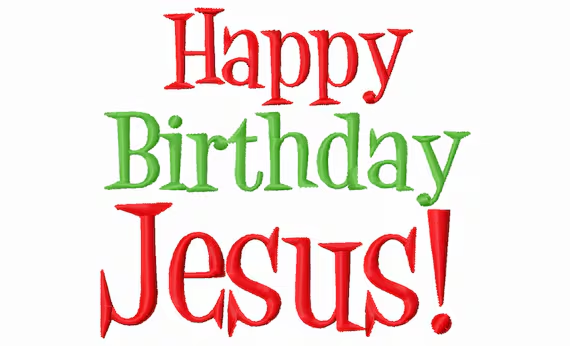
December 25 is being called in question by many as the date of Jesus’ birth. As far as can be learned this date was first mentioned during the third century. Many believe that the existence of heathen festivals celebrated on or about December 25 had great influence on its being accepted by the Roman church for special religious services, including ultimately the celebration of Jesus’ birth.
While the exact day on which Jesus was born cannot be determined, it is certain we think, that it was not in December, but rather about the first of October. When Jesus was born the shepherds of Judea were watching their sheep through the night in open pastures. Palestine does not have extremely cold weather in winter, but it would be too cold near the end of December for shepherds to be spending their nights in the open fields.
The Prophecy of Daniel (Dan. 9:24-27) reveals that Jesus’ ministry was to last for three and one-half years. It is a prophecy of sixty-nine symbolic weeks to the coming of the Messiah. Then another “week” is mentioned, the seventieth, in the midst, or middle, of which the Messiah would be “cut off,” this being a reference to Jesus’ death.
A week has seven days, and in prophecy each day represents a year. The rule is set forth in Ezekiel 4:6. This means that each prophetic week is seven years in length. The middle of such a week would therefore mark off a period of three and one-half years. It is very generally agreed that this was the length of Jesus’ ministry.
It is definitely known that Jesus was crucified in the spring of the year, at a date corresponding approximately to the early part of our month of April. This means that his ministry must have begun in the Fall, about the first of October. We are informed in Luke 3:23 that Jesus began his ministry when he was thirty years of age – perhaps even on his thirtieth birthday. Since three and one half years from that date terminated in early April it means that his birthday was about October 1, and not December 25.
Is it proper, then, to celebrate Christmas on the wrong date? Well, in the first place, there is nothing in the Scriptures enjoining Christians to celebrate the birth of Jesus at all. Naturally, however, those who appreciate what his birth means both to the church and to the world will always desire to praise the Lord for this evidence of his great love for mankind. Surely it is proper to acknowledge the goodness of God at any time of the year.
The word “Christmas” is not, of course, of biblical origin. It is a contraction of the words, “Christ’s mass,” which naturally associates it with the Roman church. The majority of those who know this still feel that they can enter into the spirit of the occasion and give thanks to God for the gift of his Son. To what extent an enlightened Christian should enter into the festivities of the day is a question for individual decision.